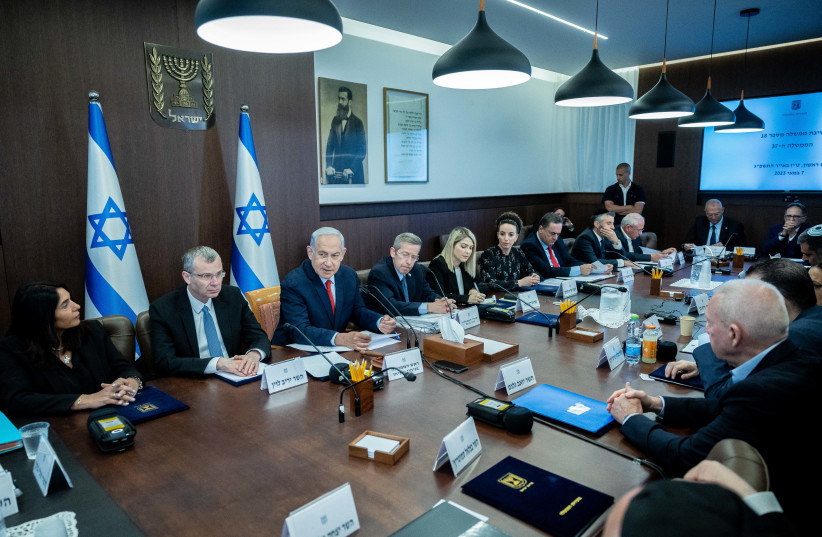Otzma Yehudit MK Zvika Fogel canceled all of the Knesset National Security Committee sessions scheduled for this week as part of the party’s boycott of the cabinet and Knesset voting.
The party is arguing that Prime Minister Benjamin Netanyahu is failing to implement a “fully right-wing” national security policy.
The committee, chaired by Fogel and which deals with issues connected to internal security, was scheduled to hold three sessions this week, on Monday, Tuesday and Wednesday, including a session on the high rate of homicides in the Arab sector, with National Security Minister Itamar Ben-Gvir attending.
Otzma Yehudit's boycott
The announcement on Monday to cancel the sessions came after Otzma Yehudit’s ministers boycotted Sunday’s weekly cabinet meeting, and Ben-Gvir announced last week that his party was not going to attend Knesset votes until it is given “significant influence” over the government’s national security policy.
KAN’s Michael Shemesh reported on Sunday evening on a list of demands that Ben-Gvir made as a condition to end the boycott. These include a military operation in Judea and Samaria; approving parts of the government’s controversial judicial reforms; Ben-Gvir’s participation in security discussions; and worsening the conditions of incarcerated terrorists.
The heightened tension between Ben-Gvir and Netanyahu began on Tuesday, when the former was not invited to participate in a security situation assessment after more than 20 rockets were fired from Gaza earlier in the day. The national security minister at first decided to respond only by boycotting Wednesday’s Knesset plenum.

However, the Likud put out a statement that same day telling Ben-Gvir that if he was unhappy with the government’s decisions, he was welcome to resign. The national security minister responded by prolonging the boycott on the Knesset plenum until he is not only invited to important security decision-making forums, but also given an active role in setting policy.
"The way to create change is not by threats to topple the government and boycotting votes in the cabinet and coalition bills in the Knesset."
Bezalel Smotrich, Finance Minister and Religious Zionist Party chairman
The absence of Otzma Yehudit’s six MKs from the Knesset plenum means the coalition will have a narrow 58-56 majority until the issue is resolved.
Finance Minister and Religious Zionist Party chairman Bezalel Smotrich criticized Ben-Gvir’s conduct.
“The way to create change is not by threats to topple the government and boycotting votes in the cabinet and coalition bills in the Knesset. The biggest prize to terrorism will be toppling the Right and the rise of the Left together with terror supporters,” Smotrich said.
Coalition whip Ofir Katz (Likud) also criticized Ben-Gvir.
“You can say until tomorrow that ‘we are not toppling a right-wing government,’ but to skip a cabinet meeting, a meeting of the heads of the coalition parties, boycott Knesset votes and cancel budget debates, is exactly the path to toppling the right-wing government, and it will be clear to everyone who will be responsible. Right-wing policy is advanced with hard work and cooperation, not boycotts,” Katz said.
